BMW X1 vs VW Touareg – Performance, range & efficiency compared
Everyday use, family trips or long-distance drives – here’s where the differences show.
Discover whether BMW X1 or VW Touareg fits your lifestyle better.
Costs and Efficiency:
Price and efficiency are key factors when choosing a car – and this is often where the real differences emerge.
BMW X1 has a decisively advantage in terms of price – it starts at 38200 £, while the VW Touareg costs 63200 £. That’s a price difference of around 24999 £.
Fuel consumption also shows a difference: BMW X1 manages with 0.80 L and is therefore decisively more efficient than the VW Touareg with 2.20 L. The difference is about 1.40 L per 100 km.
As for range, the BMW X1 performs distinct better – achieving up to 83 km, about 32 km more than the VW Touareg.
Engine and Performance:
Under the bonnet, it becomes clear which model is tuned for sportiness and which one takes the lead when you hit the accelerator.
When it comes to engine power, the VW Touareg has a evident edge – offering 462 HP compared to 326 HP. That’s roughly 136 HP more horsepower.
In acceleration from 0 to 100 km/h, the VW Touareg is slight quicker – completing the sprint in 5.10 s, while the BMW X1 takes 5.40 s. That’s about 0.30 s faster.
There’s no difference in top speed – both reach 250 km/h.
There’s also a difference in torque: VW Touareg pulls noticeable stronger with 700 Nm compared to 477 Nm. That’s about 223 Nm difference.
Space and Everyday Use:
Cabin size, boot volume and payload all play a role in everyday practicality. Here, comfort and flexibility make the difference.
Both vehicles offer seating for 5 people.
In curb weight, BMW X1 is evident lighter – 1575 kg compared to 2059 kg. The difference is around 484 kg.
In terms of boot space, the VW Touareg offers distinct more room – 810 L compared to 540 L. That’s a difference of about 270 L.
In maximum load capacity, the VW Touareg performs somewhat better – up to 1800 L, which is about 200 L more than the BMW X1.
When it comes to payload, VW Touareg distinct takes the win – 751 kg compared to 500 kg. That’s a difference of about 251 kg.
Who comes out on top?
Overall, the BMW X1 shows itself to be leaves the rival little chance and secures the title of DriveDuel Champion.
It convinces with the more balanced overall package and proves to be the more versatile choice for everyday use.
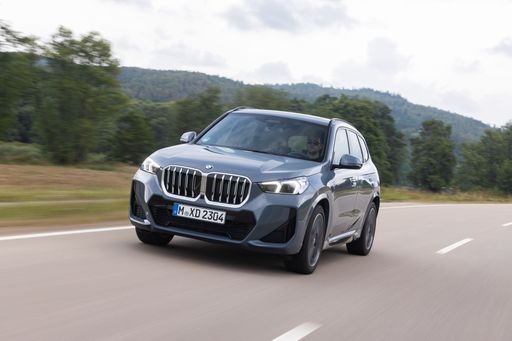 @ press.bmwgroup.com
@ press.bmwgroup.com
BMW X1
BMW X1
The new BMW X1 effortlessly blends sporty elegance with practical functionality, making it a standout choice in the compact SUV segment. Inside, the sophisticated cabin design is complemented by high-quality materials and cutting-edge technology, creating a welcoming and advanced driving environment. On the road, the vehicle's agile handling and responsive performance promise an engaging driving experience, whether navigating urban streets or embarking on longer journeys.
details @ press.bmwgroup.com
@ press.bmwgroup.com
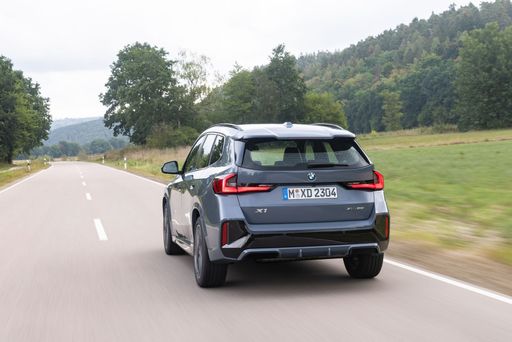 @ press.bmwgroup.com
@ press.bmwgroup.com
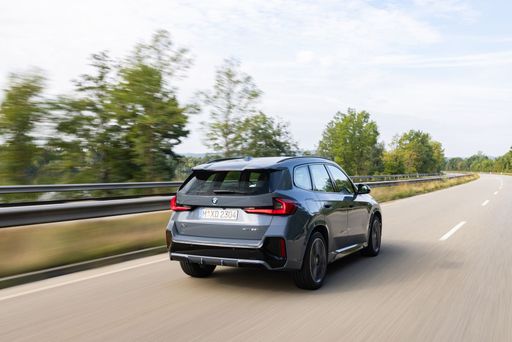 @ press.bmwgroup.com
@ press.bmwgroup.com
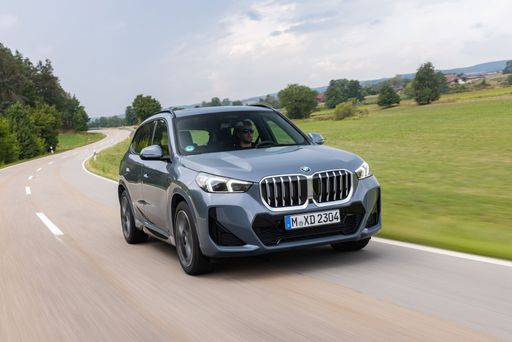 @ press.bmwgroup.com
@ press.bmwgroup.com
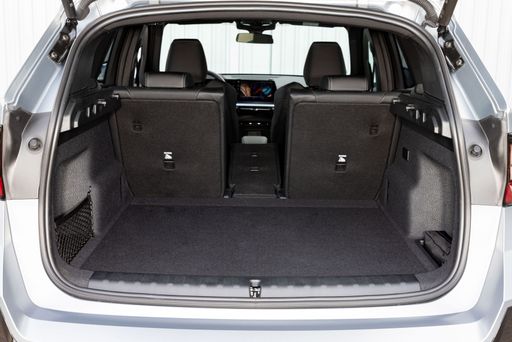 @ press.bmwgroup.com
@ press.bmwgroup.com
VW Touareg
The VW Touareg stands out in the luxury SUV market with its blend of sophisticated design and advanced technology. Its interior exudes an air of refinement, featuring premium materials and state-of-the-art infotainment systems. On the road, the Touareg offers a smooth and dynamic driving experience, effortlessly combining power and precision handling.
details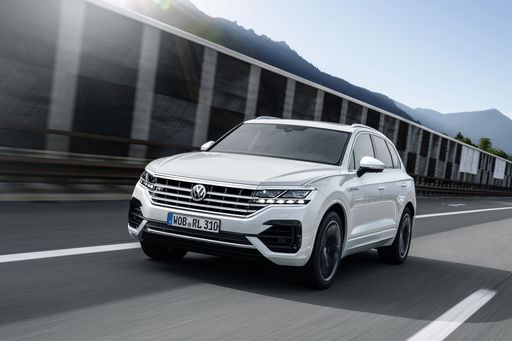 @ Volkswagen
@ Volkswagen
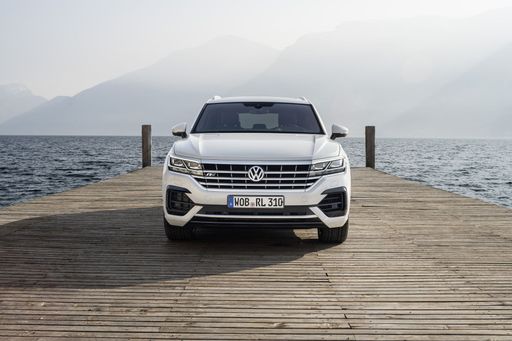 @ Volkswagen
@ Volkswagen
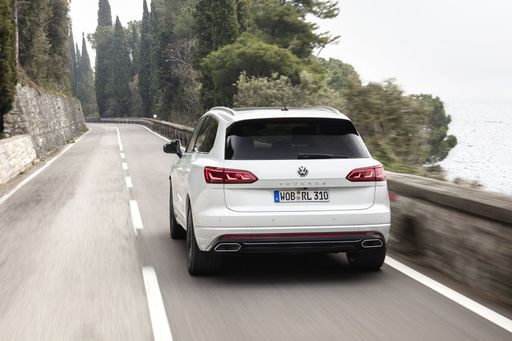 @ Volkswagen
@ Volkswagen
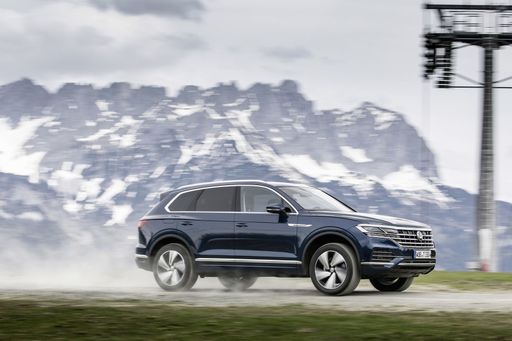 @ Volkswagen
@ Volkswagen
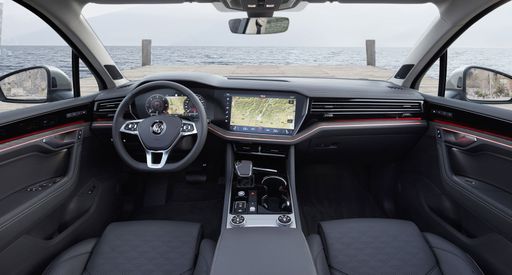 @ Volkswagen
@ Volkswagen
 @ press.bmwgroup.com
@ press.bmwgroup.com
|
 @ Volkswagen
@ Volkswagen
|
|
|
|
Costs and Consumption |
|
|---|---|
|
Price
38200 - 55500 £
|
Price
63200 - 86000 £
|
|
Consumption L/100km
0.8 - 7.7 L
|
Consumption L/100km
2.2 - 10.5 L
|
|
Consumption kWh/100km
-
|
Consumption kWh/100km
-
|
|
Electric Range
83 km
|
Electric Range
48 - 51 km
|
|
Battery Capacity
14.20 kWh
|
Battery Capacity
14.30 kWh
|
|
co2
17 - 175 g/km
|
co2
48 - 239 g/km
|
|
Fuel tank capacity
47 - 54 L
|
Fuel tank capacity
75 L
|
Dimensions and Body |
|
|---|---|
|
Body Type
SUV
|
Body Type
SUV
|
|
Seats
5
|
Seats
5
|
|
Doors
5
|
Doors
5
|
|
Curb weight
1575 - 1935 kg
|
Curb weight
2059 - 2470 kg
|
|
Trunk capacity
490 - 540 L
|
Trunk capacity
665 - 810 L
|
|
Length
4500 - 4505 mm
|
Length
4878 - 4902 mm
|
|
Width
1845 mm
|
Width
1984 mm
|
|
Height
1622 - 1642 mm
|
Height
1693 - 1712 mm
|
|
Max trunk capacity
1495 - 1600 L
|
Max trunk capacity
1675 - 1800 L
|
|
Payload
490 - 500 kg
|
Payload
550 - 751 kg
|
Engine and Performance |
|
|---|---|
|
Engine Type
Diesel MHEV, Petrol MHEV, Plugin Hybrid, Petrol, Diesel
|
Engine Type
Plugin Hybrid, Petrol, Diesel
|
|
Transmission
Automatic
|
Transmission
Automatic
|
|
Transmission Detail
Dual-Clutch Automatic
|
Transmission Detail
Automatic Gearbox
|
|
Drive Type
Front-Wheel Drive, All-Wheel Drive
|
Drive Type
All-Wheel Drive
|
|
Power HP
136 - 326 HP
|
Power HP
231 - 462 HP
|
|
Acceleration 0-100km/h
5.4 - 9.2 s
|
Acceleration 0-100km/h
5.1 - 7.7 s
|
|
Max Speed
190 - 250 km/h
|
Max Speed
222 - 250 km/h
|
|
Torque
230 - 477 Nm
|
Torque
450 - 700 Nm
|
|
Number of Cylinders
3 - 4
|
Number of Cylinders
6
|
|
Power kW
100 - 240 kW
|
Power kW
170 - 340 kW
|
|
Engine capacity
1499 - 1998 cm3
|
Engine capacity
2967 - 2995 cm3
|
General |
|
|---|---|
|
Model Year
2023 - 2025
|
Model Year
2023 - 2025
|
|
CO2 Efficiency Class
D, E, B, F
|
CO2 Efficiency Class
B, G
|
|
Brand
BMW
|
Brand
VW
|
Is the BMW X1 offered with different drivetrains?
The BMW X1 is offered with Front-Wheel Drive or All-Wheel Drive.
The prices and data displayed are estimates based on German list prices and may vary by country. This information is not legally binding.
